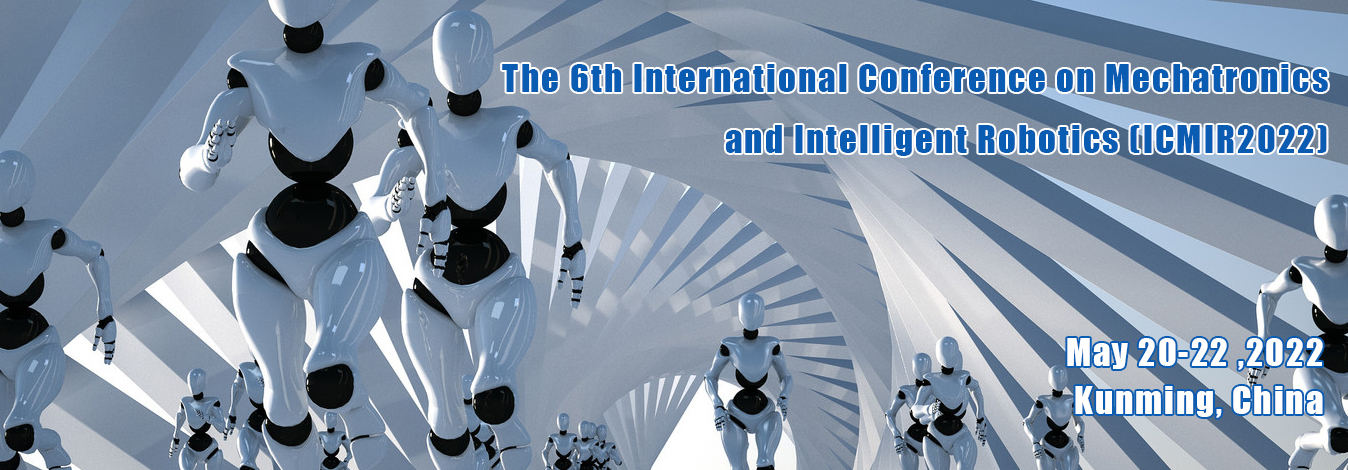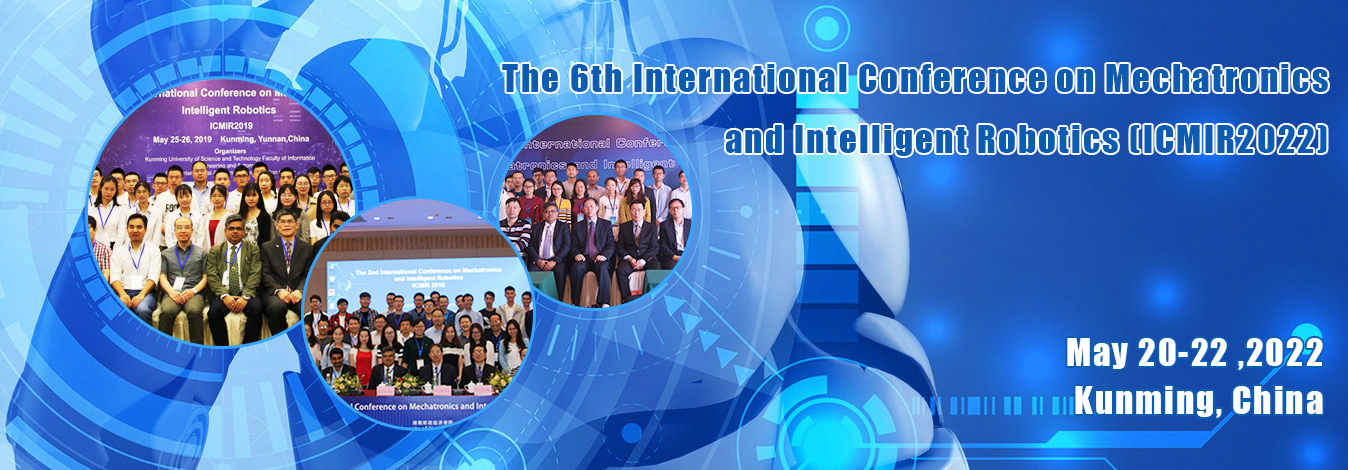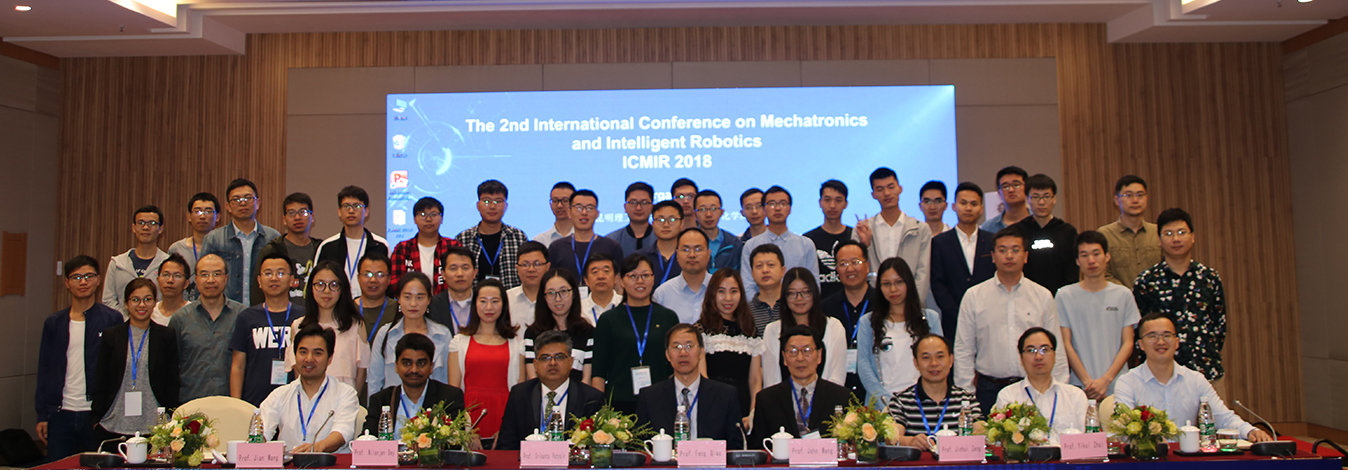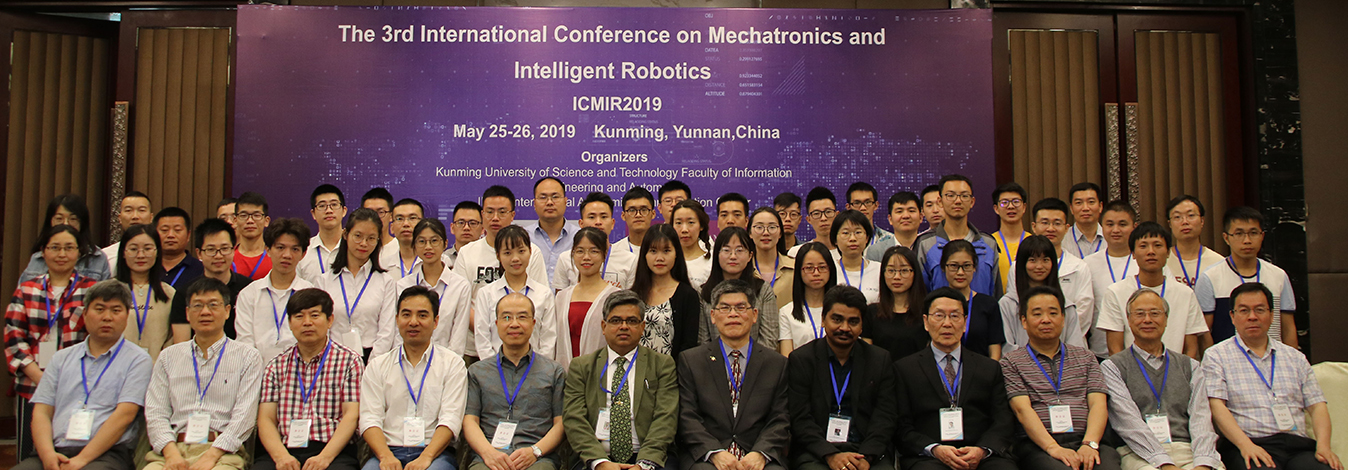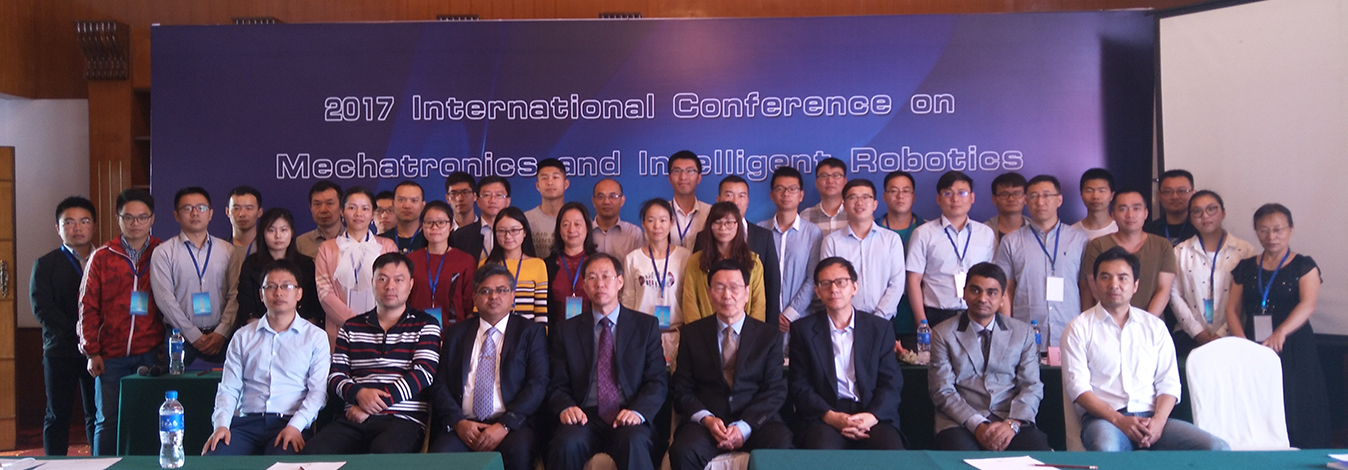Keynote Speaker

Prof.Xie Ming
Nanyang Technological University, Singapore
Xie Ming received the B.Eng degree in control and automation engineering from East-China Institute of Textile Technology (now under the name of Donghua University, Shanghai, China). Subsequently, under the nation's prestigious overseas scholarship of Chinese government, he has completed the postgraduate studies and doctorate research works, and has received the Master degree from the University of Valenciennes (France) in 1986 as well as the PhD degree from the University of Rennes (France) in 1989. Since 1986, he has worked as Research Assistant at IRISA-INRIA Rennes, Expert Engineer at INRIA Sophia-Antipolis, Lecturer/Senior Lecturer/Associate Professor of Nanyang Technological University, Fellow of Singapore-MIT Alliance (SMA) (Affiliated with Innovation in Manufacturing Systems and Technology Program), Guest Professor of Huazhong University of Science and Technology (2002, 2006), Professor awarded by China's Jiangsu Provincial Government (2014), and Dean of College of Electrical Engineering and Control Science at Nanjing Tech University (2014-2016). He was the General Chair of 2007 International Conference on Climbing and Walking Robots (CLAWAR), the General Chair of 2009 International Conference on Intelligent Robotics and Applications (ICIRA), the Co-founder of the International Journal of Humanoid Robotics (SCI/SCIE indexed), Co-founder of Singapore-China Association for Advancement of Science and Technology, Co-founder of Robotics Society of Singapore. He has taught the courses such as Robotics, Artificial Intelligence, Applied Machine Vision, Measurement and Sensing Systems, Microprocessor Systems, and University Physics. In terms of scientific research, he has published three books, two edited books, several book chapters, over 10 patents of invention, over 30 research papers in scientific journals and over 100 research papers in international conferences. He was the recipient of one best conference paper award from World Automation Congress, the recipient of one best conference paper award from CLAWAR, the recipient of one outstanding paper award from International Journal of Industrial Robot, the recipient of one Gold Prize (S$8K) from CrayQuest, the recipient of one Grand Champion Prize (S$15K) from CrayQuest, the recipient of one A-Star's Best Research Idea Prize (S$5K), the recipient of one Silver Medal from Dragon Design Foundation.
Speech Title:New Foundation of Artificial Intelligence.
Abstract:Artificial Intelligence is regaining its wide popularity in recent years. On one hand, the importance of Artificial Intelligence is due to the availability of big data which is the result of the formation of large systems that are interconnected by various networks. On the other hand, robots and machines of tomorrow are urgently in need of gaining self-intelligence so as to be able to efficiently perform difficult tasks, and even to free people from doing dangerous jobs. With the rise of Artificial Intelligence in the public minds or eyes, people are putting a very high level of interests on knowing the scientific solutions behind the understanding and capabilities of self-skills and self-intelligence. In this keynote speech, I will go through the following key points: what is today’s definition of Artificial Intelligence? what is today’s blueprint of Artificial Intelligence? what is the history of Artificial Intelligence? what is the current state of art in terms of cognitive capabilities which enable machines to see? ? what is the current state of art in terms of cognitive capabilities which enable machines to hear? what are possible applications which are, or will be, enabled by Artificial Intelligence?, etc.
Keywords:Artificial Self-Intelligence, Vision-centric Intelligence, Speech-centric Intelligence, Planning-centric Intelligence, Control-centric Intelligence, Data-centric Intelligence, Design-centric Intelligence.

Prof. Giuseppe Carbone
DIMEG-University of Calabria, Italy
Giuseppe Carbone has got his PhD degree in Robotics from the University of Cassino, Italy, in 2004 where he has been Assistant Professor and Key Member of the Laboratory of Robotics and Mechatronics (LARM) for about 15 years. He has been visiting professor at Universidad Carlos III of Madrid, Beihang University, Waseda University, and several other well-reputed International Research Institutions. From 2018 he has joined University of Calabria, Italy as Associate Professor. From 2020 he is Chair of IFToMM TC on Robotics and Mechatronics. From 2018 to 2021 he has been Visiting professor at Sheffield Hallam University, UK where he served as Senior Lecturer and member of the Executive board of Sheffield Robotics from 2015 to 2017. From 2021 he is also Scientific Director of the International Research Laboratory Intelligent Robotic Systems and Technologies, University of Belgorod with State assignment of Ministry of Science and Higher Education of the Russian Federation under Grant FZWN-2020-0017. Among others he is Treasurer of the IFToMM Italy Member Organization, Editor-in-Chief of Robotica Journal (Cambridge Univ. Press), Section EIC of Journal of Bionic Engineering, MDPI Robotics, MDPI Machines, Technical Editor of IEEE/ASME Transactions on Mechatronics. He has been PI or co-PI of more than 20 projects including 7th European Framework and H2020 funds. He has received more than 20 Best Paper awards and more than 10 International Best Patent awards. His research interests cover aspects of Engineering Design, Mechanics of Robots, Mechanics of Manipulation and Grasp, Mechanics of Machinery with over 400 research paper outputs, 20 patents, and 16 Phd completions (6 ongoing). He has been also member of 20 PhD evaluation Commissions and viva in Italy, Spain, Finland, UK, Romania, Mexico. He has been invited to deliver Keynote speeches and lectures on his research activity at more than 30 International events. He edited/co-edited four books that have been published by Springer and Elsevier International Publishers. h-index 32 n. citations >4500 (source google scholar).
Speech Title:ON THE DESIGN OF ASSISTIVE ROBOTICS SOLUTIONS
Abstract:The aging of population and decline of NHS resources in Europe is opening new problems in healthcare that might be conveniently addressed with robotics solutions, in a near future. This presentation provides a quick overview of the open problems and solutions by focusing to robotic assisted post-stroke rehabilitation. Several design solutions will be outlined and discussed by referring to the outcomes of AGEWELL, a European Co-fund project led by prof. Carbone in collaboration with CESTER laboratory, TU Cluj-Napoca, Romania. Some proposed solutions are outlined as referring to LAWEX, ASPIRE, and PaRReX patented designs. This exploits the possibilities of novel robotic architectures. For instance, the structure of LAWEX is a non-conventional cable-driven open architecture, which allows accessibility of patients under treatment. Using wristbands, cables are connected to the end-effector which covers the limb to be trained. ASPIRE is a spherical parallel architecture intended for shoulder assistance as it can perform multiple feasible shoulder motion ranges. PaRRex can be seen as a wearable exoskeleton with modular structure, consisting of two parallel modules, one for the forearm mobilization (elbow flexion) and the pronation/supination, the second parallel module is designed to mobilize the wrist (flexion/extension and abduction/ adduction).
.jpg)
Prof.Simon X. Yang
University of Guelph, Canada
Prof. Simon X. Yang received the B.Sc. degree in engineering physics from Beijing University, China in 1987, the first of two M.Sc. degrees in biophysics from Chinese Academy of Sciences, Beijing, China in 1990, the second M.Sc. degree in electrical engineering from the University of Houston, USA in 1996, and the Ph.D. degree in electrical and computer engineering from the University of Alberta, Edmonton, Canada in 1999. Prof. Yang joined the School of Engineering at the University of Guelph, Canada in 1999. Currently he is a Professor and the Head of the Advanced Robotics & Intelligent Systems (ARIS) Laboratory at the University of Guelph in Canada.
Prof. Yang has diversified research expertise. His research interests include robotics, intelligent systems, control systems, sensors and multi-sensor fusion, wireless sensor networks, intelligent communication, intelligent transportation, machine learning, and computational neuroscience. Prof. Yang he has been very active in professional activities. Prof. Yang serves as the Editor-in-Chief of International Journal of Robotics and Automation, and an Associate Editor of IEEE Transactions on Cybernetics, IEEE Transactions on Artificial Intelligence, and several other journals. He has involved in the organization of many international conferences.
Speech Title:Bioinspired Intelligent Approaches to Real-Time Navigation of Autonomous Robotic Systems.
Abstract:Studies of biologically inspired artificial intelligence have made significant progress in both understanding the biological systems and developing innovative bionic applications to diversified autonomous robotic systems for information acquisition, signal processing, data analysis, decision making, and system control. In this talk, I will start with a very brief introduction to some biologically inspired intelligent computations and their applications to early vision and sensory motion in biological systems. After that, I will focus on our recent works on innovative applications of bioinspired intelligence to various robotic systems, such as real-time intelligent sensing, path planning, tracking, control, and teleoperation of autonomous robotic systems including mobile robots, water surface robots, underwater robots, and unmanned aerial robots; intelligent real-time monitoring and control of livestock odors using novel robotic e-noses; and intelligent real-time coordination and cooperation of multi-robot systems.
Keywords:Autonomous robots; biologically inspired; intelligent systems; path planning; control; cooperation of multi-robots.
